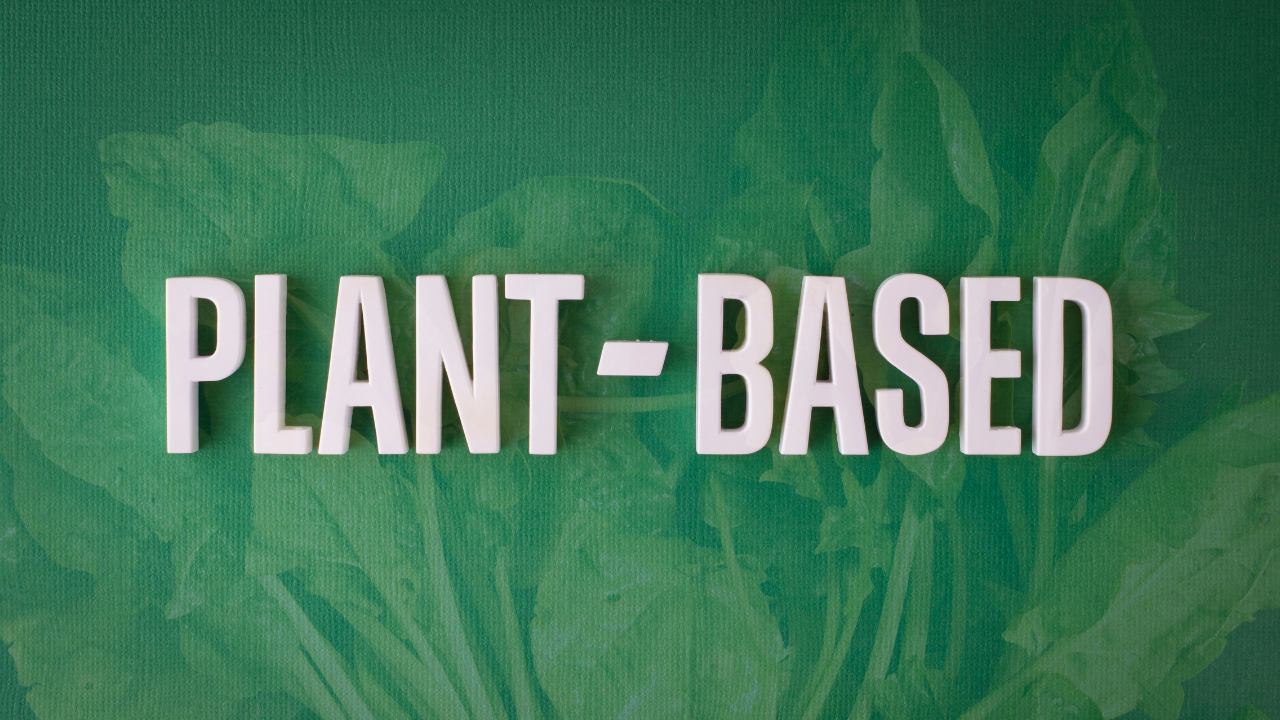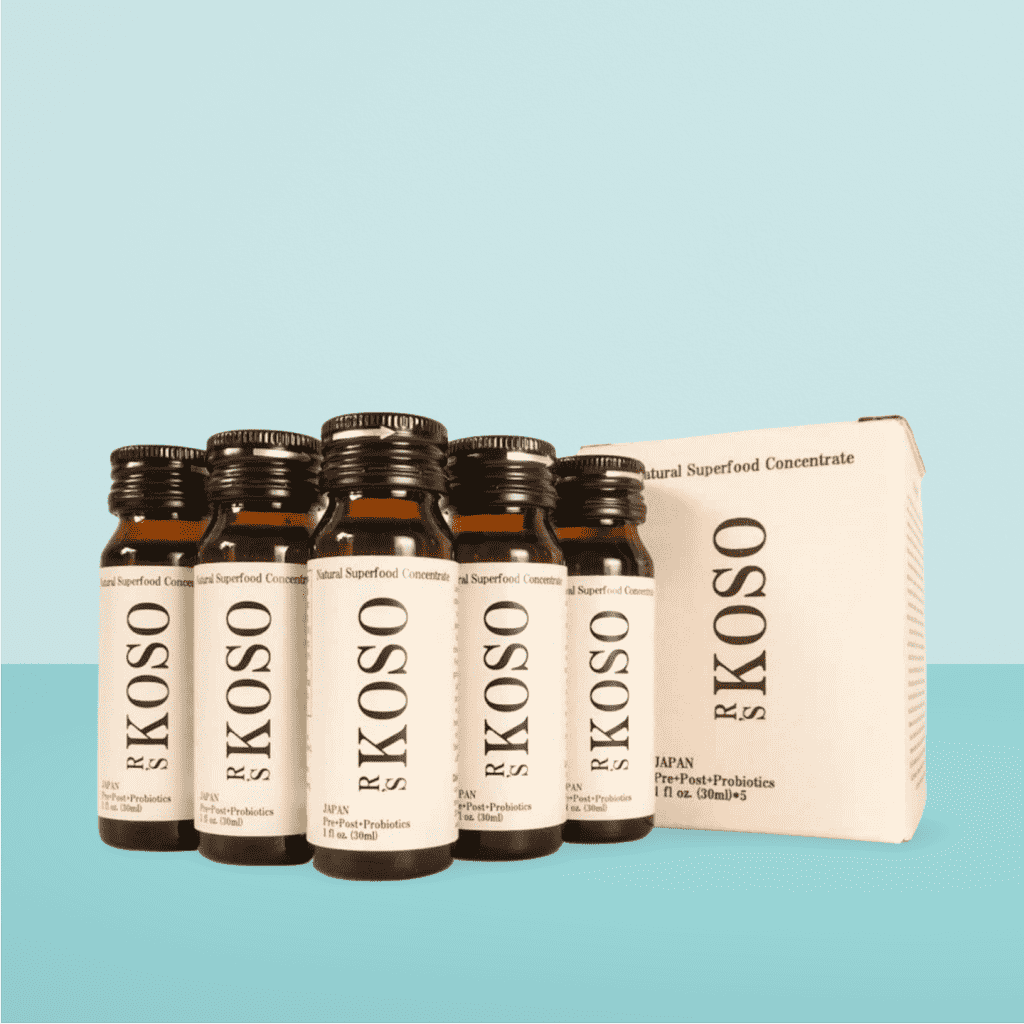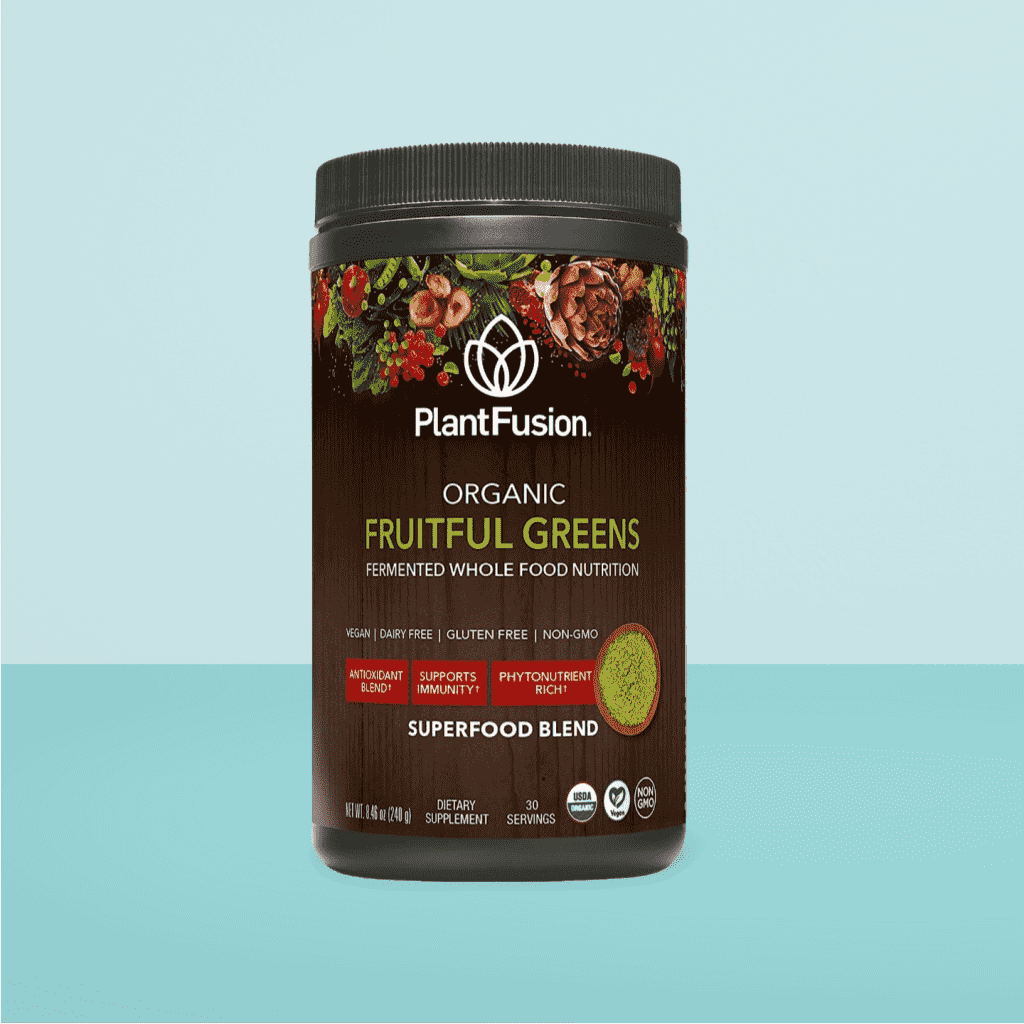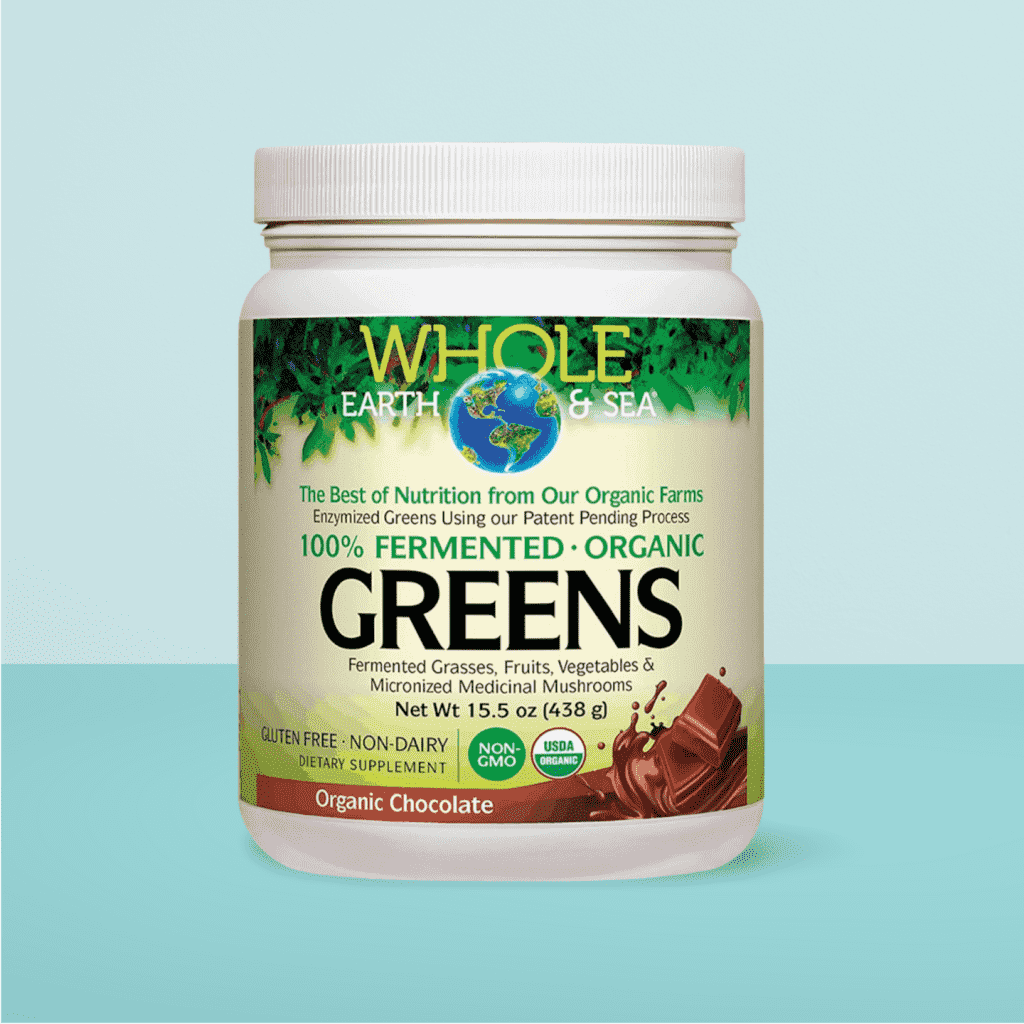Health Benefits of Fermented Plant-Based Foods for Covid-19 Patients
Discover the positive impact of fermented plant-based foods on the gut microbiome. Incorporate these foods into your diet for better health.

Extensive research has been conducted on the advantageous effects of fermented foods on human health. This has led to a growing interest in identifying bioactive peptides and microbial metabolites present in such foods that lessen the effects of COVID-19 by boosting the antioxidant activity of foods and increasing immunity by improving digestion ✅.
Each fermented food typically hosts a distinct population of microorganisms. When we eat fermented foods, the nutrients, and microorganisms can interact with the bacteria in our gut ✅.
Moreover, according to Merino et al., analyzing data from 592,571 participants revealed that individuals who followed a dietary pattern consisting of healthy plant-based foods had a 9% lower risk of contracting COVID-19 and a 41% lower risk of experiencing severe COVID-19 symptoms ✅.
Fermented foods have been found to have beneficial effects on the gut microbiome in both the short and long term, making them an important component of a healthy human diet.
This article will explore these advantages in detail.
Keywords: Fermented Foods, Plant-based, Covid-19
Fermented Plant-Based Foods & benefits
Introduction
A balanced diet with essential micronutrients, vitamins, and trace elements is crucial for a strong immune system. Poor nutrition can lead to viral diseases, while fermented and functional foods can enhance the immune system. A healthy and balanced diet is crucial for a strong immune system ✅.
Consuming plant-based foods can lead to an increase in beneficial bacteria in the intestines. These bacteria are known to make up 85% of the immune system, making plant-based foods a valuable addition to a healthy diet ✅.
Fermented foods contain beneficial microorganisms such as Lactobacillus sp. and Streptococcus sp. (both lactic acid bacteria) and molds like Rhizophus sp. and Aspergillus sp. that show favorable effects on health as a result of changes by enzymes and metabolites ✅.
Fermentation has been a natural solution for food processing since ancient times, and it is gaining more popularity than ever before ✅. This ancient and simple technique is often used to improve the safety, nutritional value, texture, and taste of plant-based materials in a natural and cost-effective way ✅.
Fermented plant-based foods and beverages are a rich source of energy, dietary fiber, protein, carbohydrates, antioxidants, phytochemicals, and phytonutrients. The fermentation process in plant-based sources can enhance the bioavailability of vitamins, especially the B-group, and various minerals ✅.
According to the study, an increase in fermented vegetable consumption by 1 gram per day in the average national consumption was associated with a 35.4% decrease in mortality risk for COVID-19 ✅.
A healthy and balanced diet, including fermented and plant-based foods, is crucial for a strong immune system and can enhance the bioavailability of essential micronutrients and vitamins.
Flora Biome - Live Probiotic, Prebiotic & Postbiotic
- USDA Organic
- 100% Shelf Stable
- GMO-Free
- Gluten-Free
- Vegan
- 50 Billion CFU
- 10 Probiotics Strains
- 19 Fermented Herbs

How Do Fermented Foods Benefit Gut Health In Covid-19 Patients?
Fermentation has been associated with numerous health benefits, which may arise from either the direct interaction between the live microorganisms ingested and the host (probiotic effect) or the consumption of microbial metabolites produced during the fermentation process (biogenic effect) ✅.
Fermented foods can have a positive impact on gut microbiota as they contain probiotic bacteria, fiber, and short-chain fatty acids which are beneficial biological components ✅.
The interaction between the gut microbiota and lung microbiota is commonly referred to as the Gut Lung Axis (GLA) ✅.
GLA regulates immune responses and may impact the progression of respiratory illnesses, according to recent studies ✅.
According to reports from China, there may be a link between COVID-19 and intestinal dysbiosis, which can lead to inflammation and a weakened response to pathogens ✅✅.
Consuming fermented foods, particularly plant-based ones, may have a positive impact on gut homeostasis and GLA restoration ✅.
Changing gut microbiota can reduce ventilator-associated pneumonia through the gut-lung axis, as shown in two trials (not COVID-19-specific) ✅.
During the COVID-19 pandemic, it has been reported that a percentage ranging from 2 to 47 of infected patients require invasive mechanical ventilation ✅.
Accordingly, a study suggests that COVID-19-related pneumonia could potentially be alleviated in a similar way✅.
Furthermore, as people get older, the variety of microbes in their microbiome usually decreases considerably ✅. This may play a role in the differing impact of viral infections on older adults.
HIGHLIGHT
Consuming fermented foods can have a positive impact on gut microbiota and the Gut Lung Axis, which may potentially alleviate COVID-19-related pneumonia.
1. May Enhance The Immune System
Eating plant-based foods may strengthen the immune system and reduce the risk of COVID-19 ✅✅✅.
Probiotics, including lactic acid bacteria (LAB) found in fermented foods, have an immunomodulatory effect ✅.
This effect includes protecting epithelial cells by promoting mucin production and mucus secretion, as well as biofilm formation that can saturate receptors, including viral receptors ✅.
Probiotics also activate dendritic cells to secrete proinflammatory cytokines like IL-6, IL-12, and interferon (IFN)γ ✅.
They also boost the innate immune cells, such as macrophages and natural killer (NK) cells, which can kill viruses and virus-infected cells, and produce interferon IFNα, an antiviral cytokine ✅.
Additionally, probiotics stimulate the overexpression of innate immunity-related genes, such as Toll-like receptors (TLR7) ✅.
The LAB improves the immune response and promotes the production of GI tract-specific IgA antibodies ✅.
Kimchi, a Korean fermented food, has potential anti-tumor properties that could be utilized for the development of COVID-19 therapy targeting anti-tumor necrosis factor (TNF) ✅.
The Malaysian kicap sauce is known to contain gamma-aminobutyric acid (GABA), a key immune-boosting compound that can help in the first line of defense against initial exposure to COVID-19 ✅.
Douchi, a Chinese ingredient, has strong antioxidant properties that may help to reduce oxidative stress and inflammation in COVID-19 patients' infected organs ✅
As for drug repurposing, Korean cheonggukjang may improve anti-COVID-19 efficacy ✅.
HIGHLIGHT
Certain plant-based and fermented foods, such as kimchi, Malaysian kicap sauce, and Chinese douchi, have immune-boosting and anti-inflammatory properties that may be useful in COVID-19 therapy.
R's KOSO Japanese Postbiotic Drink
- Pre+Post+Probiotics
- 100% Natural Product
- GMO-Free
- Dairy Free
- Vegan
- Pre+Post+Probiotics
- 100% Natural Product
- GMO-Free
- Dairy Free
- Vegan

2. May Have Anti-Inflammatory Properties
Post-SARS-CoV-2 entry, host factors trigger an immune response against the virus. If left uncontrolled, this response may result in pulmonary tissue damage.
The term used to describe an excessive inflammatory response is known as the cytokine storm ✅.
Subsequently, NF-κB activation leads to inflammatory factor expression via a specific pathway ✅.
Certain metabolites, including lactate, acetate, and other short-chain fatty acids, present in fermented foods, possess anti-inflammatory and modulation properties that have a positive impact on the gut microbiota, thereby promoting overall health ✅.
These types of foods may suppress pro-inflammatory cytokine production and increase Treg cells ✅.
A study conducted by Chen et al. found that kefir peptides can reduce the infiltration of inflammatory cells and the expression of inflammatory mediators such as IL-lβ, IL-4, and TNF-α in lung tissue caused by particulate matter. This effect is achieved by deactivating the NF-κB signaling pathway ✅.
Compounds with antioxidant properties may be a potential approach to alleviate the cytokine storm by neutralizing reactive oxygen species involved in the body's inflammatory response ✅.
Fermented foods are a rich source of antioxidants, including proline, conjugated linoleic acid, and phenolic compounds. These antioxidants play a significant role in the anti-inflammatory effects of fermented foods ✅.
Research has shown that cytokine storm syndrome and coagulopathy may be closely related to the development of acute pulmonary embolism through in-situ thrombosis. Administration of prophylactic doses of heparin to patients with D-dimer levels exceeding 3.0 μg/mL have been observed to reduce mortality rates by 20% ✅.
Fermented food products may possess antithrombotic or fibrinolytic properties that could potentially aid in reducing mortality rates among COVID-19 patients.
HIGHLIGHT
Fermented foods and compounds with anti-inflammatory and antioxidant properties may help reduce inflammation caused by SARS-CoV-2, potentially leading to less tissue damage and lower mortality rates.
3. Could Protect Against Secondary Bacterial Infections
Fermented foods and probiotics have been found to be clinically effective in reducing the incidence, severity, and duration of upper respiratory tract infections ✅.
Although the effects and mechanisms of probiotics against the new SARS-CoV-2 virus are yet to be tested, there have been reported effects of probiotics against other strains of coronavirus ✅.
Furthermore, secondary bacterial infections can contribute significantly to morbidity and mortality during COVID-19 infection.
LAB species found in fermented vegetable and milk products produce antimicrobial compounds like bacteriocin and pediocin, which have antibacterial activities. Therefore, fermented foods could potentially provide COVID-19 patients with protection against secondary bacterial infections.
HIGHLIGHT
Fermented foods and probiotics may reduce upper respiratory tract infections and offer protection against secondary bacterial infections for individuals with COVID-19.
PlantFusion Fruitful Fermented Juice Powder
- USDA Organic
- 100% Natural Product
- GMO-Free
- Gluten-Free
- Dairy Free
- Vegan
- Reduction of Simple Sugars
- Each Scoop Has Fruitful Greens
- Third-party Tested
- Pioneer Plant-based Brand

4. Mitigate Risk Factors For Severe COVID-19
The mortality rate reported in COVID-19 patients is significantly impacted by the presence of comorbidities such as hypertension, diabetes, hypercholesterolemia, and cardiovascular diseases ✅.
Fermented foods contain angiotensin-converting enzyme (ACE)-inhibiting peptides and are recommended as a non-pharmacological way to manage hypertension ✅.
Angiotensin I-converting Enzyme Inhibitor activity has been found in plant-based foods and medicinal plants ✅✅✅✅✅.
The receptor for the severe acute respiratory syndrome coronavirus 2 (SARS-CoV-2) has been identified as the angiotensin-converting enzyme 2 (ACE2) ✅.
ACE inhibitors can increase the expression and activity of ACE2 in the lungs, which may lead to higher susceptibility of cells to the SARS-CoV-2 viral host entry and propagation.
Activation of ACE2 has the potential to improve the condition of acute lung injury ✅✅.
Fermented foods with ACE inhibitor peptides may have dual effects. However, current evidence does not support the hypothesis that ACE inhibitors increase vulnerability to SARS-CoV-2 infection ✅✅.
Hypertension is a known risk factor for severe COVID-19. Adopting a diet that helps prevent hypertension can be a useful strategy in preventing or reducing the severity of COVID-19.
Consuming fermented foods may have potential health benefits, including reducing risk factors for severe COVID-19 such as hypertension, coronary heart disease, insulin resistance, and serum LDL-cholesterol levels.
HIGHLIGHT
Fermented foods with ACE-inhibiting peptides may offer health benefits by reducing risk factors for severe COVID-19, such as hypertension, coronary heart disease, insulin resistance, and serum LDL-cholesterol levels. A healthy diet can help prevent hypertension and reduce the severity of COVID-19.
Key Takeaways
- Fermented plant-based foods and beverages are a rich source of energy, dietary fiber, protein, carbohydrates, antioxidants, phytochemicals, and beneficial microorganisms such as Lactobacillus sp. and Streptococcus sp. and molds like Rhizophus sp. and Aspergillus sp.
- Consuming plant-based foods can lead to an increase in beneficial bacteria in the intestines, which make up 85% of the immune system, making plant-based foods a valuable addition to a healthy diet.
- Fermented foods contain beneficial microorganisms that can ensure the safe arrival of beneficial microorganisms to the gut from food processing and storage to their passage through the gastrointestinal tract.
- A healthy and balanced diet is crucial for a strong immune system.
Whole Earth & Sea Organic Fermented Greens
- USDA Organic
- B Corp Certified
- 100% Fermented
- GMO-Free
- Gluten-Free
- Dairy Free
- Vegan
- Medicinal Mushrooms
- Third-party tested
- 60-Year Brand

References
Fitnature uses only high-quality sources, including peer-reviewed studies, to support the facts within our articles. Read our editorial process to learn more about how we fact-check and keep our content accurate, reliable, and trustworthy.
- Arshad, Muhammad Sajid, et al. “Coronavirus Disease (COVID‐19) and Immunity Booster Green Foods: A Mini Review.” Food Science & Nutrition, vol. 8, no. 8, pp. 3971–76, https://doi.org/10.1002/fsn3.1719. Accessed 9 June 2023.
- Baud, et al. “Using Probiotics to Flatten the Curve of Coronavirus Disease COVID-2019 Pandemic.” Frontiers in Public Health, vol. 8, May 2020, https://doi.org/10.3389/fpubh.2020.00186.
- Baud, David, et al. “Using Probiotics to Flatten the Curve of Coronavirus Disease COVID-2019 Pandemic.” Frontiers in Public Health, vol. 8, Jan. 2020, https://doi.org/10.3389/fpubh.2020.00186.
- Biagi, Elena, et al. “The Gut Microbiota of Centenarians: Signatures of Longevity in the Gut Microbiota Profile.” Mechanisms of Ageing and Development, vol. 165, July 2017, pp. 180–84, https://doi.org/10.1016/j.mad.2016.12.013.
- Bousquet, Jean, et al. “Is Diet Partly Responsible for Differences in COVID-19 Death Rates between and within Countries?” Clinical and Translational Allergy, vol. 10, May 2020, p. 16, https://doi.org/10.1186/s13601-020-00323-0.
- Calder, Philip C., and Samantha Kew. “The Immune System: A Target for Functional Foods?” British Journal of Nutrition, vol. 88, no. S2, pp. S165–76, https://doi.org/10.1079/BJN2002682. Accessed 9 June 2023.
- Cassani, Lucía, et al. “Technological Strategies Ensuring the Safe Arrival of Beneficial Microorganisms to the Gut: From Food Processing and Storage to Their Passage through the Gastrointestinal Tract.” Food Research International, vol. 129, Mar. 2020, p. 108852, https://doi.org/10.1016/j.foodres.2019.108852.
- Celik, Velat, et al. “Do Traditional Fermented Foods Protect against Infantile Atopic Dermatitis – PubMed.” Pediatric Allergy and Immunology : Official Publication of the European Society of Pediatric Allergy and Immunology, vol. 30, no. 5, Aug. 2019, https://doi.org/10.1111/pai.13045.
- Chen, Hsiao-Ling, et al. “Kefir Peptides Alleviate Particulate Matter <4 Μm (PM4.0)-Induced Pulmonary Inflammation by Inhibiting the NF-κB Pathway Using Luciferase Transgenic Mice.” Scientific Reports, vol. 9, no. 1, Aug. 2019, p. 11529, https://doi.org/10.1038/s41598-019-47872-4.
- Chen, Li, et al. “Antihypertensive Potential of Plant Foods: Research Progress and Prospect of Plant-Derived Angiotensin-Converting Enzyme Inhibition Compounds.” Journal of Agricultural and Food Chemistry, vol. 69, no. 18, May 2021, pp. 5297–305, https://doi.org/10.1021/acs.jafc.1c02117.
- Connors, Jean M., and Jerrold H. Levy. “COVID-19 and Its Implications for Thrombosis and Anticoagulation.” Blood, vol. 135, no. 23, June 2020, pp. 2033–40, https://doi.org/10.1182/blood.2020006000.
- DEMİR, NİLAY, et al. “THE EFFECTS OF DIFFERENT INITIAL LACTOBACILLUS PLANTARUM CONCENTRATIONS ON SOME PROPERTIES OF FERMENTED CARROT JUICE.” Journal of Food Processing and Preservation, vol. 30, no. 3, pp. 352–63, https://doi.org/10.1111/j.1745-4549.2006.00070.x. Accessed 9 June 2023.
- elik, Velat, and Muserref Celik. Potential Health Benefits of Fermented Foods in Covid-19 Patients. Authorea, Inc., 2 July 2020, http://dx.doi.org/10.22541/au.159373093.35708796. Accessed 9 June 2023.
- Fonseca, Susana C., et al. Association between Consumption of Fermented Vegetables and COVID-19 Mortality at a Country Level in Europe. Cold Spring Harbor Laboratory, 7 July 2020, http://dx.doi.org/10.1101/2020.07.06.20147025. Accessed 9 June 2023.
- Gao, Qin Yan, et al. “2019 Novel Coronavirus Infection and Gastrointestinal Tract.” Journal of Digestive Diseases, vol. 21, no. 3, pp. 125–26, https://doi.org/10.1111/1751-2980.12851. Accessed 9 June 2023.
- Guang, Cuie. “Plant Food-Derived Angiotensin I Converting Enzyme Inhibitory Peptides.” ACS Publications, 18 May 2009, https://pubs.acs.org/doi/10.1021/jf900494d. Accessed 9 June 2023.
- Gustaw, Klaudia, et al. “New Insight into Bacterial Interaction with the Matrix of Plant-Based Fermented Foods.” Foods, vol. 10, no. 7, July 2021, https://doi.org/10.3390/foods10071603.
- Handa, Cíntia L., et al. “Comparative Study of Angiotensin I-Converting Enzyme (ACE) Inhibition of Soy Foods as Affected by Processing Methods and Protein Isolation.” Processes, vol. 8, no. 8, Aug. 2020, https://doi.org/10.3390/pr8080978.
- KASSAA, Imad AL. “Antiviral Probiotics: A New Concept in Medical Sciences.” Springer International Publishing, 1 Jan. 2017, https://link.springer.com/chapter/10.1007/978-3-319-49688-7_1. Accessed 9 June 2023.
- Kuroda, Kohei, et al. “Characterization of Nicotianamine Isolated from Soybeans.” Journal of Food Research, vol. 2, no. 2, https://doi.org/10.5539/jfr.v2n2p49. Accessed 9 June 2023.
- Lange, Klaus W., et al. “Do Natural Antioxidants Play a Role in Alzheimer’s Disease?” Journal of Food Bioactives, vol. 11, Sept. 2020, https://doi.org/10.31665/JFB.2020.11233.
- Leeuwendaal, Natasha K., et al. “Fermented Foods, Health and the Gut Microbiome.” Nutrients, vol. 14, no. 7, Apr. 2022, https://doi.org/10.3390/nu14071527.
- Lian, Jialin. “Health Benefit of Plant-Base Fermented Food and Beverage on Type 2 Diabetes Mellitus.” Highlights in Science, Engineering and Technology, vol. 11, Aug. 2022, pp. 229–38, https://doi.org/10.54097/hset.v11i.1380.
- Mak, Joyce W. Y., et al. “Probiotics and COVID-19: One Size Does Not Fit All.” The Lancet Gastroenterology & Hepatology, vol. 5, no. 7, July 2020, pp. 644–45, https://doi.org/10.1016/S2468-1253(20)30122-9.
- Melini, Francesca, et al. “Health-Promoting Components in Fermented Foods: An Up-to-Date Systematic Review.” Nutrients, vol. 11, no. 5, May 2019, p. 1189, https://doi.org/10.3390/nu11051189.
- Merino, Jordi, et al. Diet Quality and Risk and Severity of COVID-19: A Prospective Cohort Study. Cold Spring Harbor Laboratory, 25 June 2021, http://dx.doi.org/10.1101/2021.06.24.21259283. Accessed 9 June 2023.
- Muralidharan, et al. “Plant-Based Fat, Dietary Patterns Rich in Vegetable Fat and Gut Microbiota Modulation.” Frontiers in Nutrition, vol. 6, Oct. 2019, https://doi.org/10.3389/fnut.2019.00157.
- Nuraida, Lilis. “A Review: Health Promoting Lactic Acid Bacteria in Traditional Indonesian Fermented Foods.” Food Science and Human Wellness, vol. 4, no. 2, June 2015, pp. 47–55, https://doi.org/10.1016/j.fshw.2015.06.001.
- Özel, Zümrüt Begüm, and Hale İnci Öztürk. “Antiviral Mechanisms Related to Lactic Acid Bacteria and Fermented Food Products.” Tarla Bitkileri Merkez Arastirma Enstitusu, vol. 29, no. 1, June 2020, pp. 18–28, https://doi.org/10.38042/biost.2020.29.01.03.
- Pimentel-Nunes, Pedro, et al. “Toll-like Receptors as Therapeutic Targets in Gastrointestinal Diseases.” Expert Opinion on Therapeutic Targets, vol. 14, no. 4, Feb. 2010, pp. 347–68, https://doi.org/10.1517/14728221003642027.
- SAHINGOZ, Semra AKAR, and Eren YALÇIN. “The Covid-19 Pandemic and Fermented Products.” Journal of Tourism and Gastronomy Studies, vol. 10, no. 2, Jan. 2022, pp. 882–94, https://doi.org/10.21325/jotags.2022.1020.
- Şanlier, Nevin, et al. “Health Benefits of Fermented Foods.” Critical Reviews in Food Science and Nutrition, vol. 59, no. 3, Oct. 2017, pp. 506–27, https://doi.org/10.1080/10408398.2017.1383355.
- Sassi, Soumaya, et al. “Critical Optimized Conditions for Gamma-Aminobutyric Acid (GABA)-Producing Tetragenococcus Halophilus Strain KBC from a Commercial Soy Sauce Moromi in Batch Fermentation.” Fermentation, vol. 8, no. 8, Aug. 2022, https://doi.org/10.3390/fermentation8080409.
- Sencio, Valentin, et al. “Gut Dysbiosis during Influenza Contributes to Pulmonary Pneumococcal Superinfection through Altered Short-Chain Fatty Acid Production.” Cell Reports, vol. 30, no. 9, Mar. 2020, pp. 2934-2947.e6, https://doi.org/10.1016/j.celrep.2020.02.013.
- Tsai, Yueh-Ting, et al. “The Immunomodulatory Effects of Lactic Acid Bacteria for Improving Immune Functions and Benefits.” Applied Microbiology and Biotechnology, vol. 96, no. 4, Sept. 2012, pp. 853–62, https://doi.org/10.1007/s00253-012-4407-3.
- Wang, Dong, et al. “In Vitro and in Vivo Studies on the Antioxidant Activities of the Aqueous Extracts of Douchi (a Traditional Chinese Salt-Fermented Soybean Food).” Food Chemistry, vol. 107, no. 4, Apr. 2008, pp. 1421–28, https://doi.org/10.1016/j.foodchem.2007.09.072.
- Wan-Mohtar, et al. “Fermented Foods as Alternative Functional Foods during Post-Pandemic in Asia.” Frontiers in Food Science and Technology, vol. 2, Oct. 2022, https://doi.org/10.3389/frfst.2022.1047970.
- Zabetakis, Ioannis, et al. “COVID-19: The Inflammation Link and the Role of Nutrition in Potential Mitigation.” Nutrients, vol. 12, no. 5, May 2020, p. 1466, https://doi.org/10.3390/nu12051466.
Review date not set.
How we reviewed this article:
Latest on:





